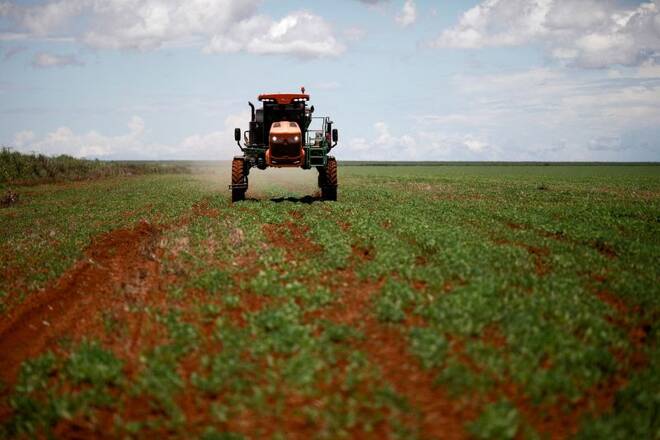Advertisement
Advertisement
Brazil fertilizer deliveries to stabilize or fall as cost woes weigh – Yara executive
By:
By Ana Mano SAO PAULO (Reuters) - Fertilizer deliveries to Brazilian farmers will stabilize or fall in 2022, an executive at Norway's Yara , a major supplier, told Reuters on Thursday, citing a global rise in prices that is also causing domestic logistical bottlenecks.
By Ana Mano
SAO PAULO (Reuters) – Fertilizer deliveries to Brazilian farmers will stabilize or fall in 2022, an executive at Norway’s Yara [YAR.OL], a major supplier, told Reuters on Thursday, citing a global rise in prices that is also causing domestic logistical bottlenecks.
Deliveries of crop nutrients have been growing steadily since at least 2019, according to data from Brazilian industry group Anda, having jumped 13% to 45.8 million tonnes at the end of 2021.
“In recent years, we have seen impressive market growth,” said Maicon Cossa, Brazil commercial vice-president at Yara, one of the country’s top three fertilizer companies. “This year we see the market tending to be stable or possibly even a little smaller than in 2021.”
Factors driving a potential reduction include higher prices after the threat of supply disruptions linked to the war in Ukraine, which sparked sanctions on Russia, a major fertilizer exporter, and caused a surge of Brazilian imports from countries like Canada.
Brazil imported 23.6 million tonnes of crop nutrients including potash and formulated products containing NPK through July, a 15.5% rise compared with the same period a year ago. By value, the import bill rose 175.3% to $16.1 billion, according to government data.
Even amid a surge in imports, Brazilian deliveries of fertilizers in May dropped 4.7% to 3.2 million tonnes, Anda said.
“On the one hand, the specter of (fertilizer) shortages caused by the war has disappeared,” Cossa said. But getting products in and shipping to the farm gate is going to be a challenge, he added.
Cossa said Brazilian farmers delayed fertilizer orders this year, affecting port unloading operations on the eve of Brazil’s planting season. A fall in fertilizer applications is a possibility, he said.
Brazil relies on imports for about 85% of its fertilizer needs.
In July, Yara temporarily halted a blending unit in southern Brazil, blaming supply disruptions related to the Ukraine war. To avoid Russian suppliers amid sanctions, the Brazilian arm of Yara sought to import more from its own sites in Europe, and from Morocco, Israel and North America, Cossa said.
(Reporting by Ana Mano; Additional reporting by Marcela Ayres; Editing by Frances Kerry)
About the Author
Reuterscontributor
Reuters, the news and media division of Thomson Reuters, is the world’s largest international multimedia news provider reaching more than one billion people every day. Reuters provides trusted business, financial, national, and international news to professionals via Thomson Reuters desktops, the world's media organizations, and directly to consumers at Reuters.com and via Reuters TV. Learn more about Thomson Reuters products:
Advertisement
